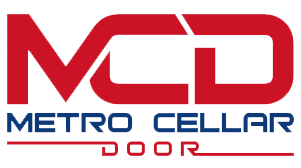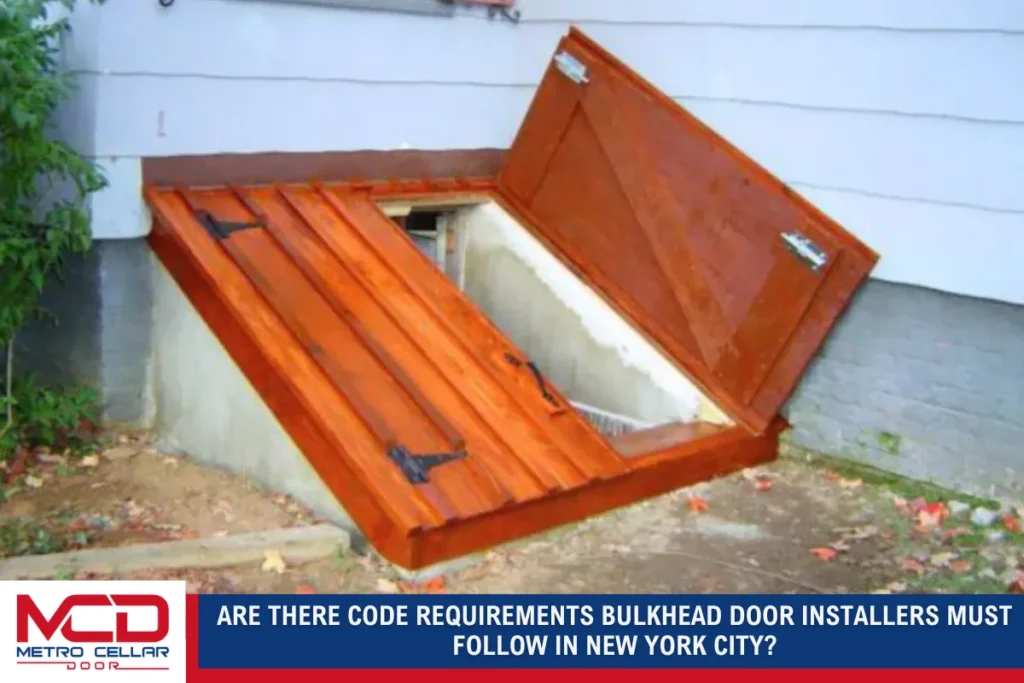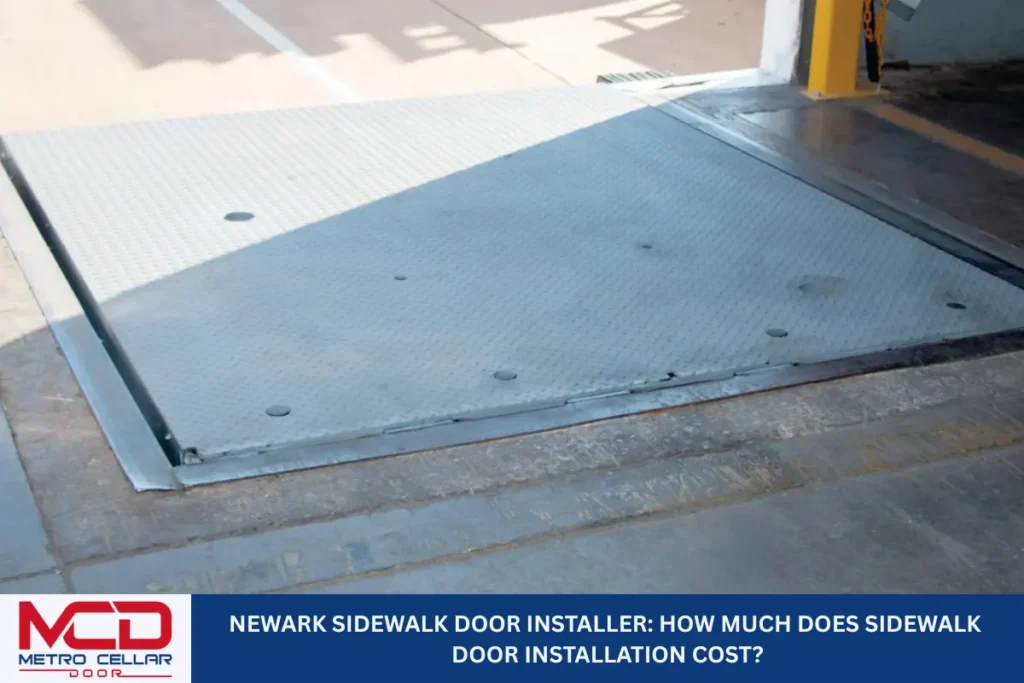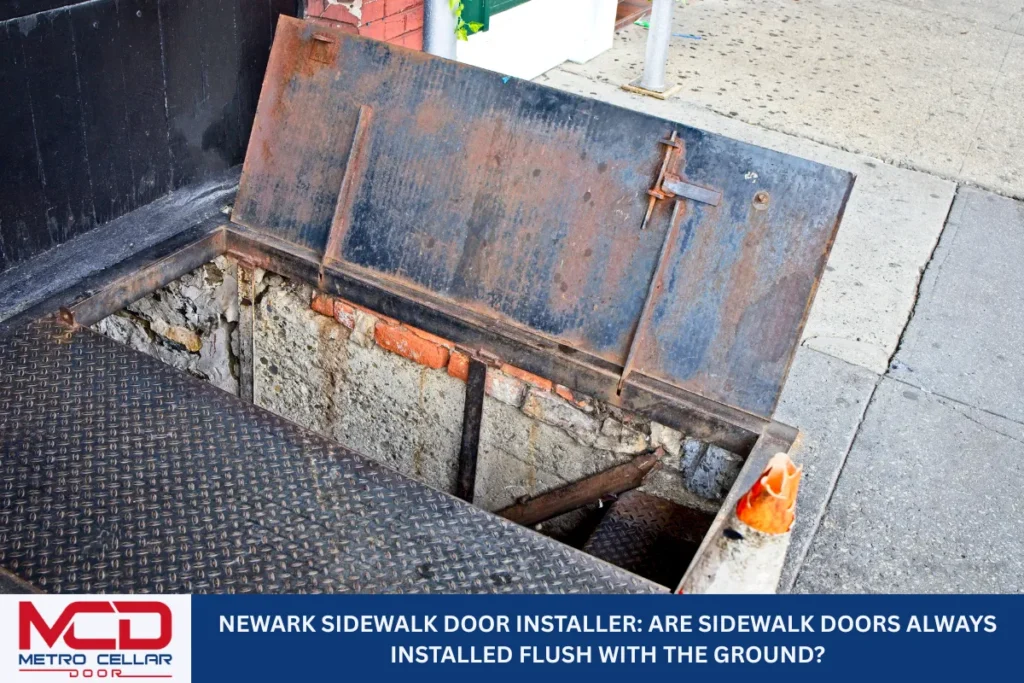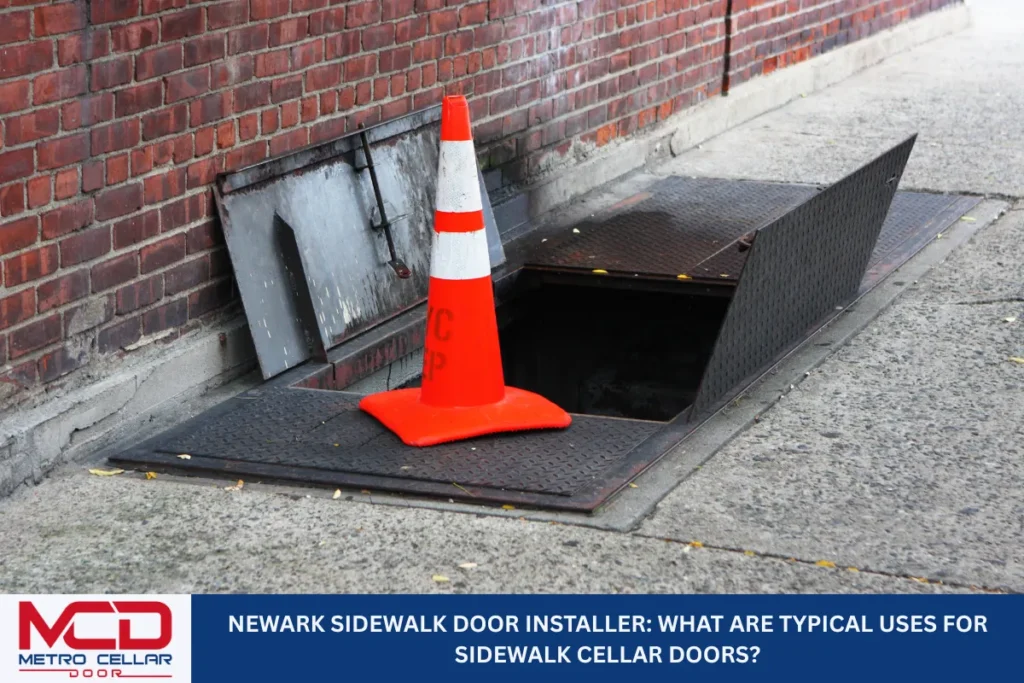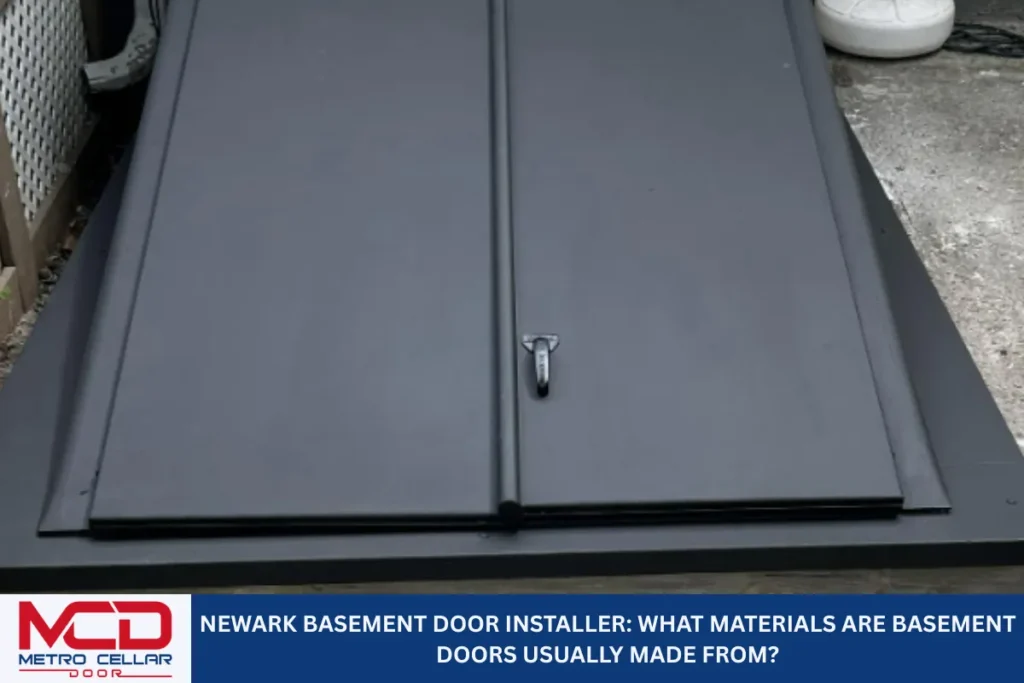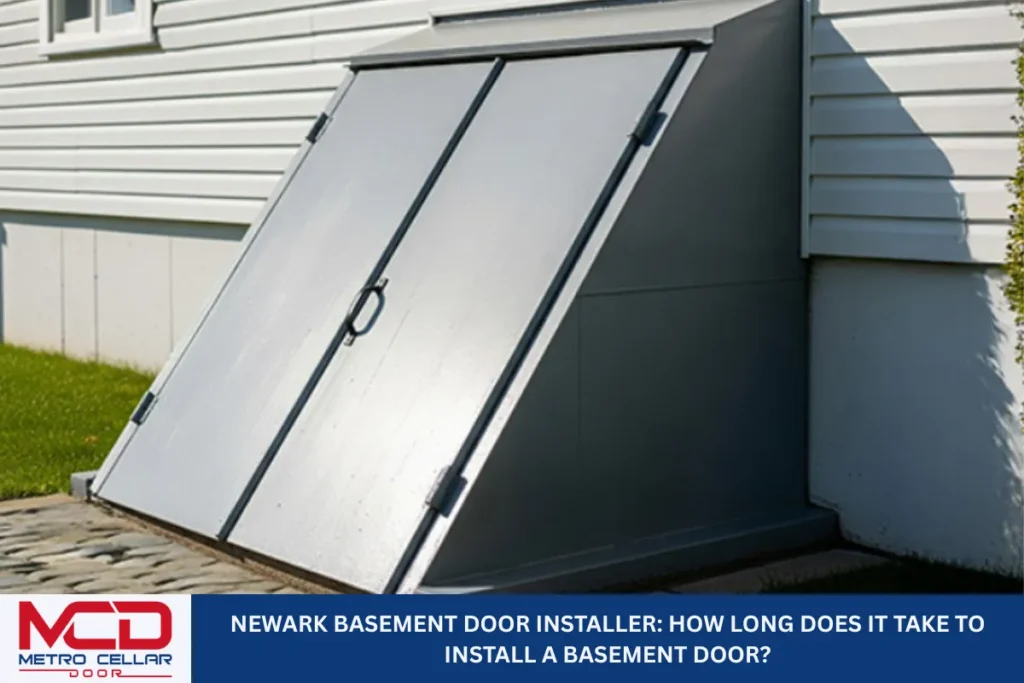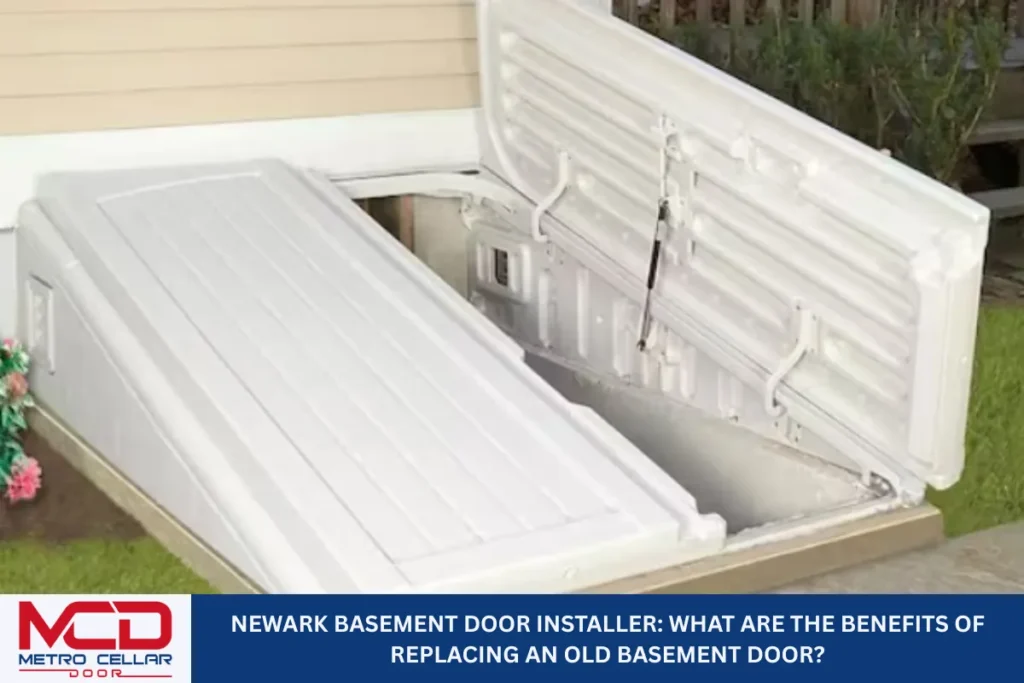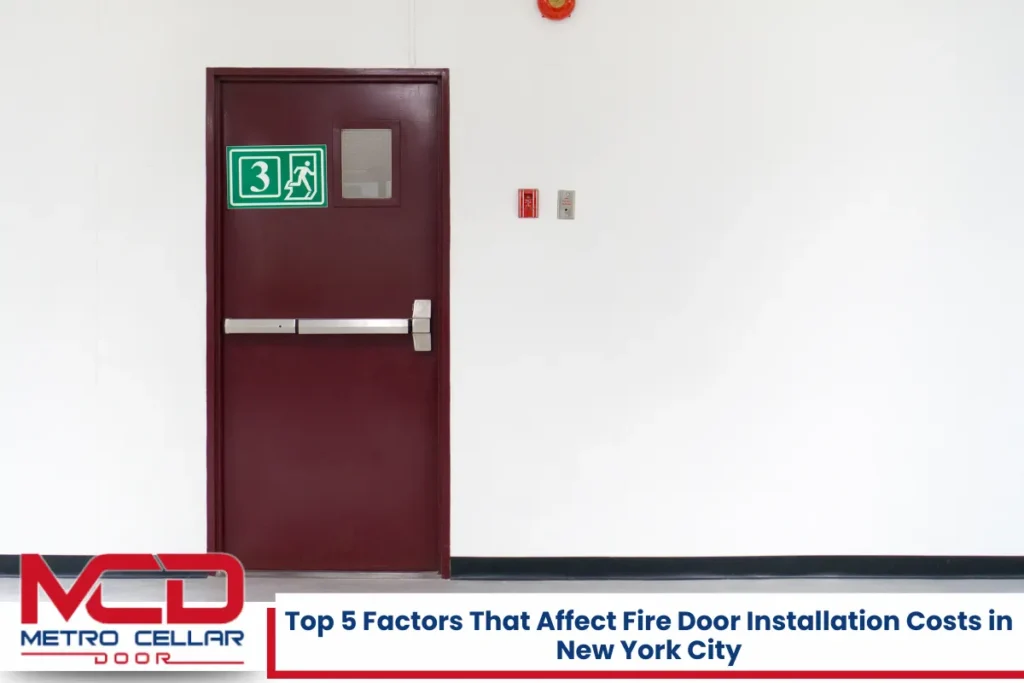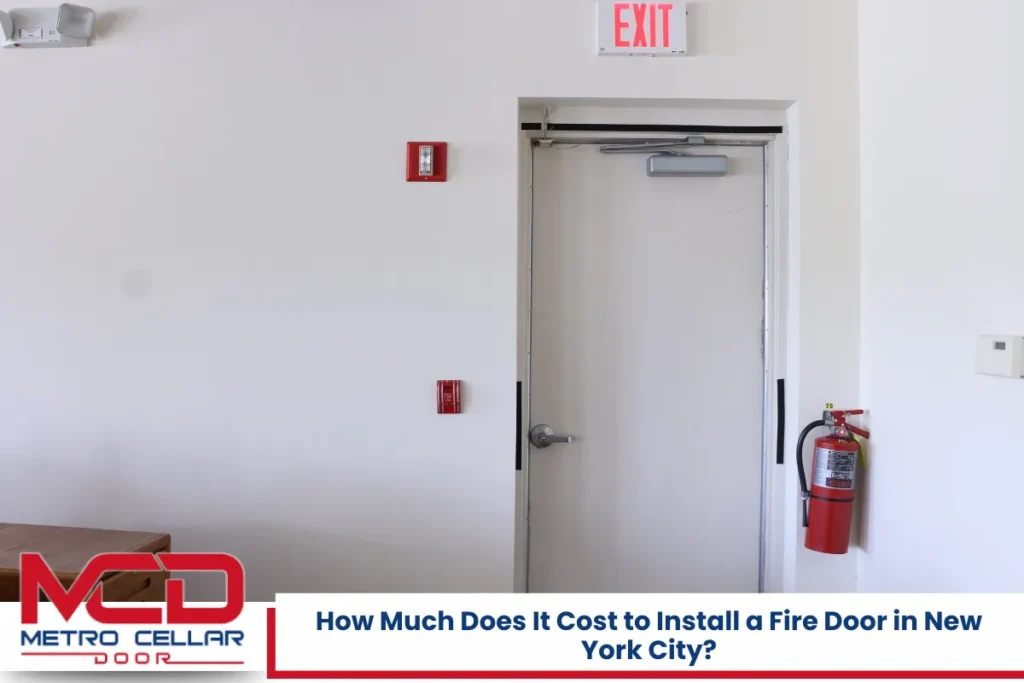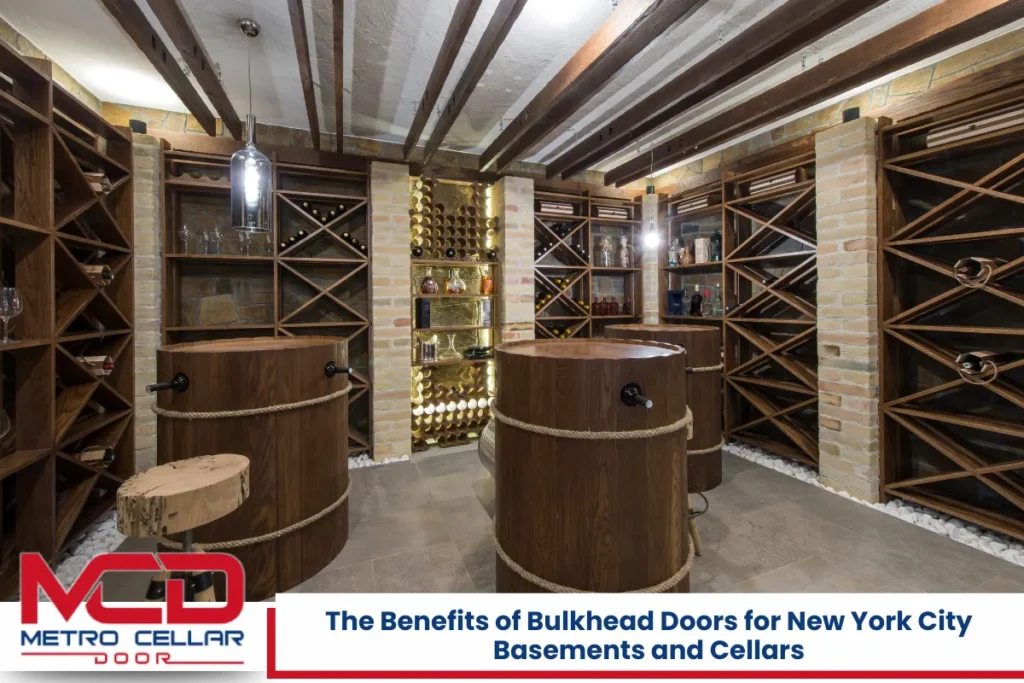Hiring a bulkhead door installer in New York City involves more than just selecting someone with the right tools and experience. Bulkhead doors—those angled, metal or reinforced doors leading to a basement or cellar—must be installed according to strict codes and regulations set by city agencies. These codes exist to protect property, ensure the safety of people using the doors, and prevent structural damage over time. In a dense and regulation-heavy city like New York, every installation must follow building, fire, and safety codes precisely.
Understanding the local requirements isn’t just helpful—it’s necessary. The following sections break down the detailed code requirements that every bulkhead door installer must follow within the five boroughs of NYC, and why staying compliant isn’t optional.
What Is a Bulkhead Door?
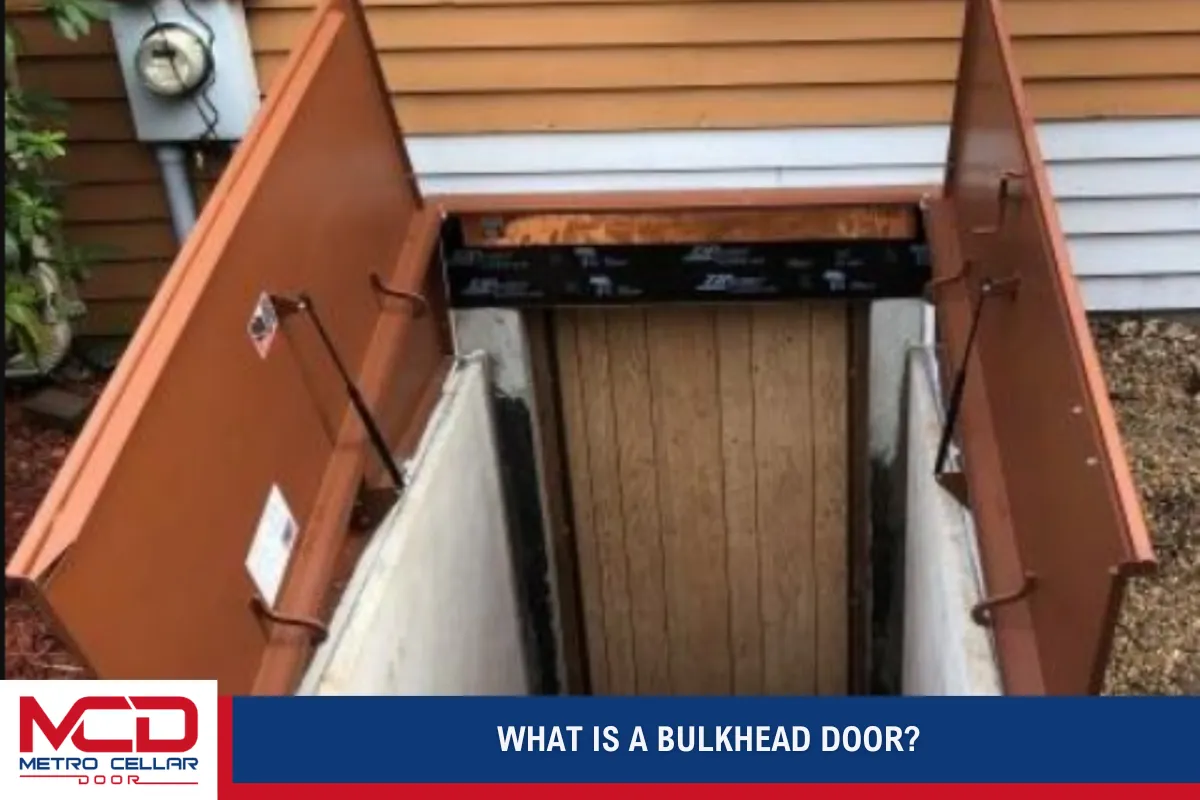
A bulkhead door, commonly known in NYC as a cellar door or basement hatch, is a type of exterior entry door typically installed at ground or sidewalk level. These doors usually lead to the basement or lower level of a building. They are often seen in older homes, brownstones, and commercial properties throughout New York City.
They’re designed to provide outside access to basements for practical reasons, such as moving large items in and out, or for emergency exit purposes. Bulkhead doors are often angled and made of steel or composite materials to withstand weather and foot traffic, especially when located on sidewalks or driveways.
In NYC, these doors can serve both residential and commercial buildings. They may also function as emergency exits, which further emphasizes the importance of adhering to building codes during installation.
Are Building Permits Required for Installing a Bulkhead Door in NYC?
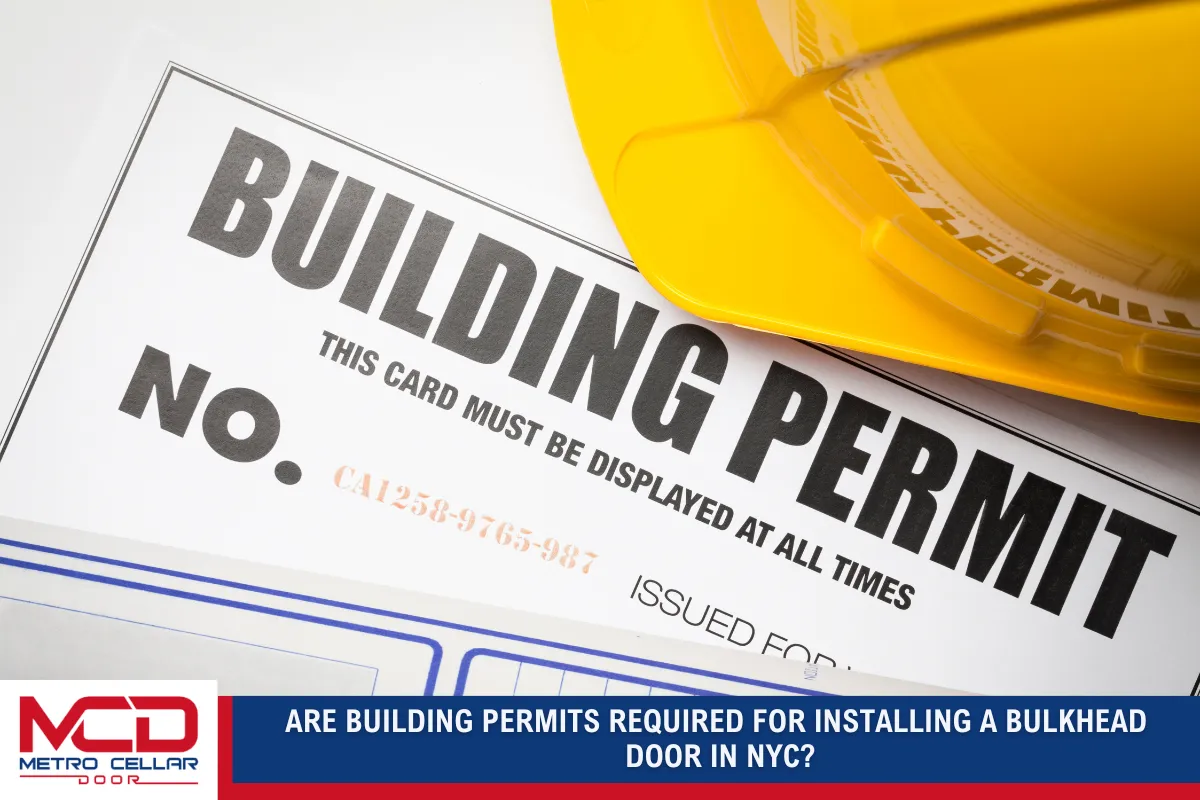
Yes, permits are typically required.
The New York City Department of Buildings (DOB) oversees all structural modifications, including the installation of bulkhead doors. If you’re creating a new access point, replacing an old one with structural alterations, or making any changes that affect the building’s envelope, a permit is mandatory.
Common Scenarios Requiring a Permit:
- Cutting into a concrete wall or sidewalk
- Expanding an existing cellar door opening
- Changing materials to fire-rated or ADA-compliant doors
- Reinforcing the door frame for structural safety
Failing to secure the proper permits can result in stop-work orders, fines, or forced removal of the new door. A knowledgeable bulkhead door installer will always factor permitting into their work process, ensuring all documentation is submitted and approved before construction begins.
NYC Building Code Requirements for Bulkhead Doors
New York City has one of the strictest building codes in the country, and bulkhead door installations fall under multiple sections of the NYC Construction Code. This includes provisions related to egress, structural integrity, durability, and safety.
Key Areas of Code Compliance:
- Clear Opening Dimensions: The door must provide enough clearance for a person to enter and exit safely. In many cases, the minimum clear width should be 32 inches.
- Headroom Requirements: NYC codes recommend at least 6 feet 8 inches of headroom if the door is a primary or secondary means of egress.
- Installation Angle and Door Design: Doors must open outward and remain in an open position without external support.
- Hardware Regulations: NYC requires that bulkhead doors intended for egress must be operable without keys or tools.
These codes are in place to ensure that the door is both functional and safe in both daily use and emergencies. Installers are expected to follow these regulations to avoid compliance issues and maintain safety standards.
Fire Code and Emergency Egress Standards
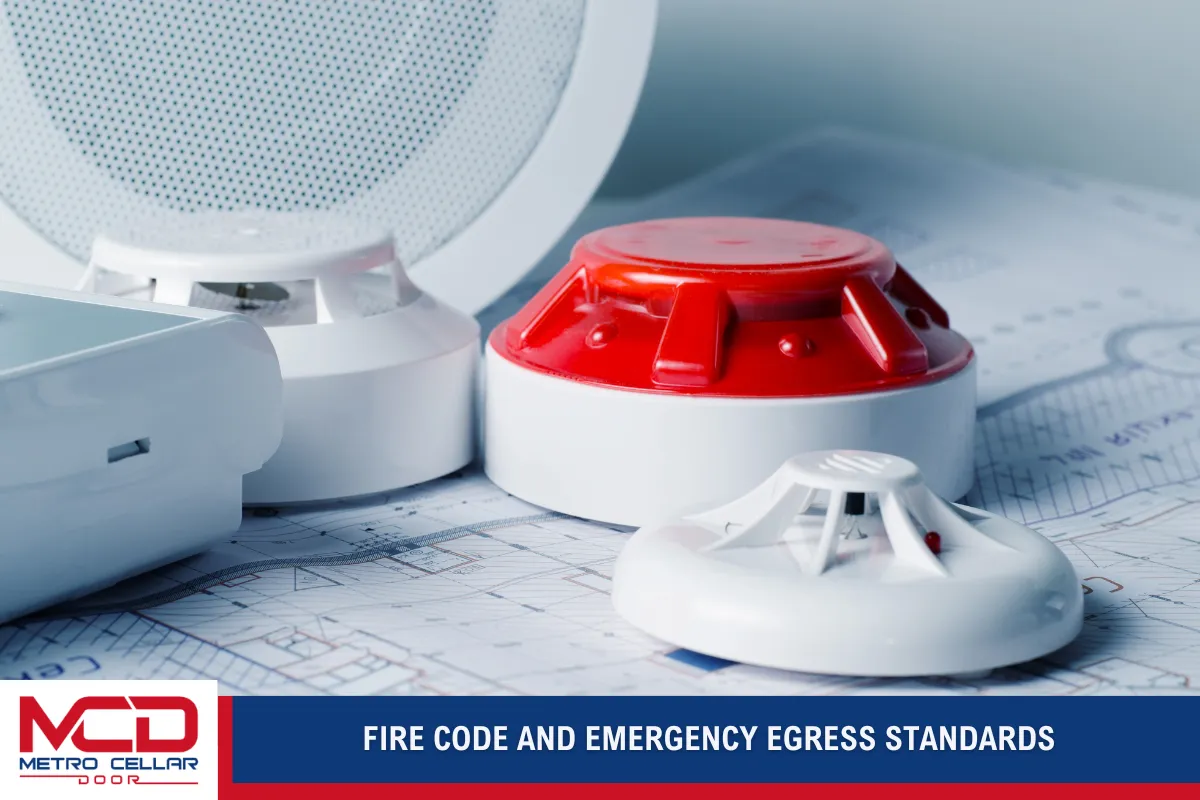
The New York City Fire Code includes specific guidelines for doors that may be used as emergency exits, especially in multi-family or commercial properties. Since some bulkhead doors serve this purpose, they must meet both fire and egress codes, as well as building regulations.
Important Fire Safety Guidelines:
- Emergency Accessibility: Doors must open from the inside without the need for tools, keys, or complicated locks.
- Unobstructed Exit Paths: The path to and from the door should be free from permanent or temporary obstacles.
- Fire-Resistant Materials: In buildings with multiple units or high fire-risk areas, doors and frames may be required to meet fire-resistance ratings.
These fire codes ensure that occupants can safely and quickly exit the building in case of a fire or other emergency. Any deviation from these rules may result in serious violations and endanger lives.
Structural Integrity and Load Support Requirements
Because bulkhead doors are often installed in concrete or masonry openings, their installation has a direct impact on the building’s structure. NYC building codes emphasize the importance of maintaining structural integrity when altering foundation walls or sidewalk spaces.
Structural Requirements Include:
- Header and Lintel Installation: Any new opening in a load-bearing wall must be properly supported with a structural header or steel beam.
- Anchoring and Fastening: The door must be securely fastened to masonry or concrete using corrosion-resistant bolts or anchors that meet local building standards.
- Foundation Modifications: Any changes to footings or load paths must be reviewed by a licensed engineer.
Improper installation can lead to foundation settling, cracked walls, or eventual door failure. That’s why bulkhead door installers must adhere strictly to these structural codes.
Weatherproofing and Drainage Compliance
New York City sees significant rainfall, snow, and temperature changes. To prevent basement flooding and structural damage, bulkhead doors must be designed and installed with weatherproofing in mind.
Required Measures:
- Water Sealing: Doors must include rubber gaskets, caulking, and seals to prevent water intrusion.
- Drainage Slopes: The concrete or metal surface around the door should slope away from the door to allow for runoff.
- Drainage Systems: In some cases, especially where the door is below ground level, drains connected to the sewer system are required by the Department of Environmental Protection (DEP).
Moisture-related violations are common in bulkhead door installations that cut corners. A proper drainage plan is essential to keep your basement dry and compliant with local laws.
Materials and Durability Standards
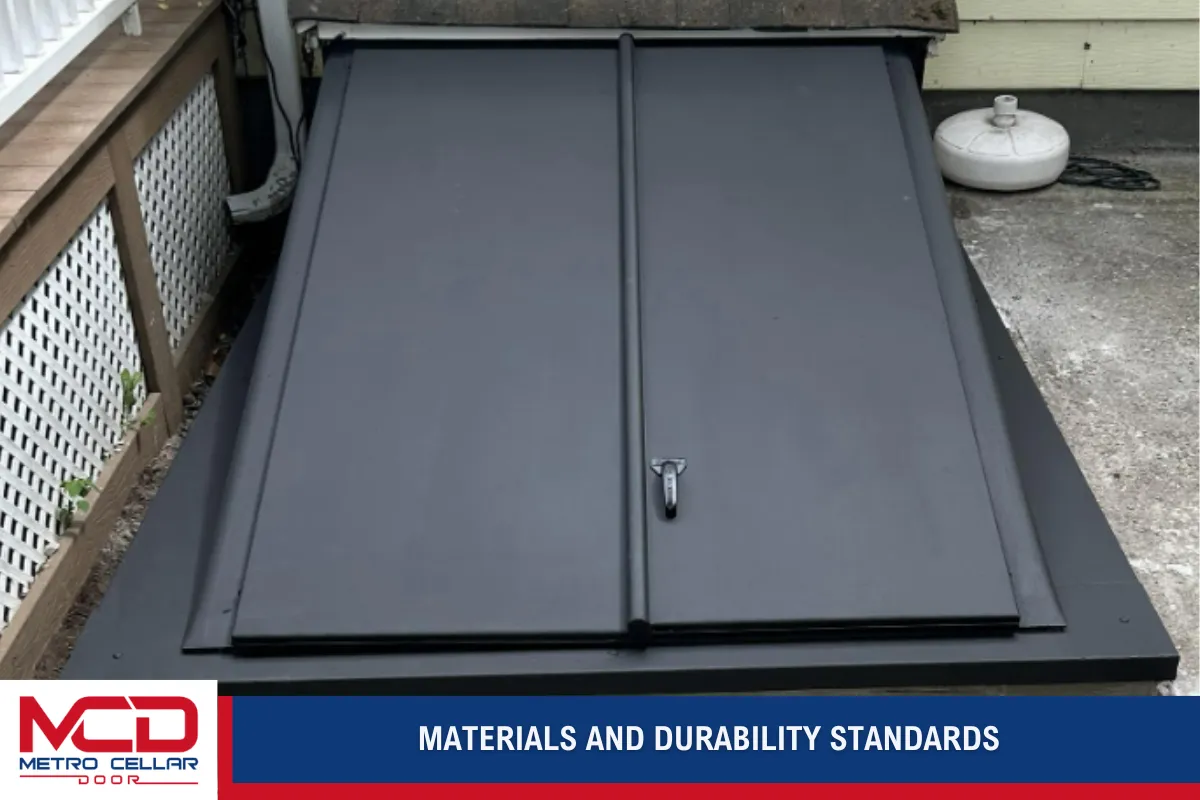
The NYC Building Code also defines the acceptable construction materials for doors that are exposed to weather, foot traffic, and potential emergency use.
Code-Compliant Materials:
- Galvanized Steel: Highly recommended for its strength and rust resistance.
- Stainless Steel: Offers long-term durability and low maintenance.
- Treated Wood (Framing Only): Suitable for internal framing when protected from direct exposure.
- Powder-Coated Finishes: Help resist corrosion and extend the life of metal doors.
Using substandard or non-approved materials may lead to failed inspections or premature deterioration. Installers must select materials that meet NYC standards and provide long-term safety and performance.
Most Common Code Violations in NYC Bulkhead Door Installations
Even experienced contractors sometimes fail to follow all local requirements. These are the most frequently cited violations during city inspections:
- Installing a bulkhead door without a permit
- Blocking an egress route with the new door frame
- Failing to provide weatherproofing or proper drainage
- Using non-rated materials in fire zones
- Installing doors that open inward (against fire code)
Avoiding these issues is possible with a certified bulkhead door installer who is familiar with the local code and licensing requirements.
Who Can Legally Install a Bulkhead Door in NYC?
Not every handyman or contractor is qualified to install bulkhead doors in New York City. Due to the structural and code implications, only licensed general contractors or specialized installers with active registration through the Department of Buildings can legally perform this type of work.
Credentials to Look For:
- New York City DOB Contractor License
- Insurance (General Liability and Workers’ Compensation)
- Permit Filing Experience
- Past Project References
Property owners are advised to request these credentials before signing any contract to ensure all work is legal and insurable.
How to Know If an Installer Is Following NYC Code
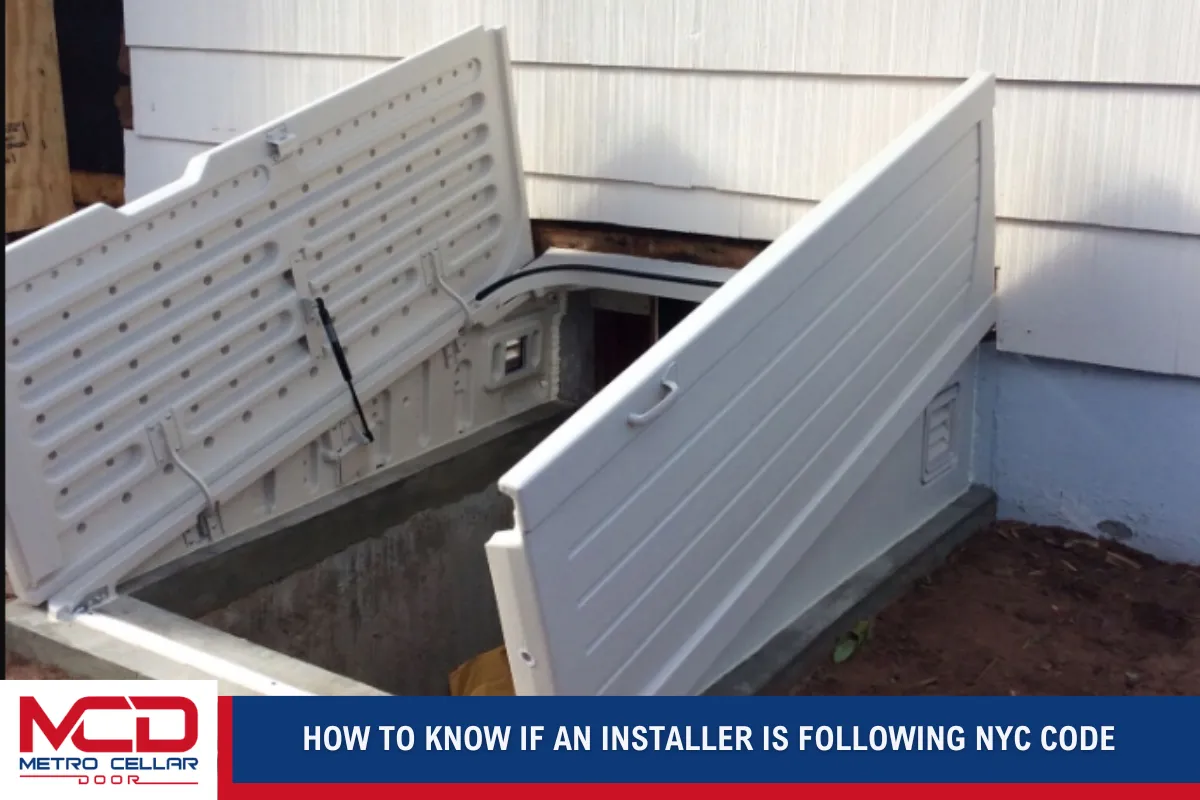
Checking for code compliance isn’t always obvious to the untrained eye. Still, there are several ways to verify that your installer is doing things correctly.
- Ask for a copy of the filed permit
- Confirm that the materials match what’s listed in the NYC code
- Request an inspection at key milestones of the project
- Look up the contractor’s record on the NYC DOB website
Compliance is more than a checklist—it’s about protecting your investment and ensuring long-term safety.
Maintenance and Inspection of Bulkhead Doors
Even after installation, bulkhead doors require regular maintenance to stay compliant and functional.
Best Practices for Maintenance:
- Inspect door seals every six months for cracks or gaps
- Clear debris from drainage areas after heavy rain
- Check for rust, corrosion, or loose fasteners annually
- Lubricate hinges and latches as needed
A small investment in maintenance can prevent large costs down the road and help avoid future code violations.
Why Code Compliance Should Matter to Every Property Owner
Following NYC code isn’t just about passing inspections—it’s about protecting people, property, and peace of mind. Non-compliant installations can lead to serious consequences like building violations, insurance cancellation, and even legal liability in the event of an injury.
Choosing an experienced and certified bulkhead door installer ensures that the job will be completed safely, legally, and to the highest standards. This not only protects your property but also helps maintain its market value over time.
Being proactive and working with the right professionals can make all the difference between a smooth project and a costly mistake.
New York City Bulkhead Door Installer – Metro Cellar Door Bilco Pro
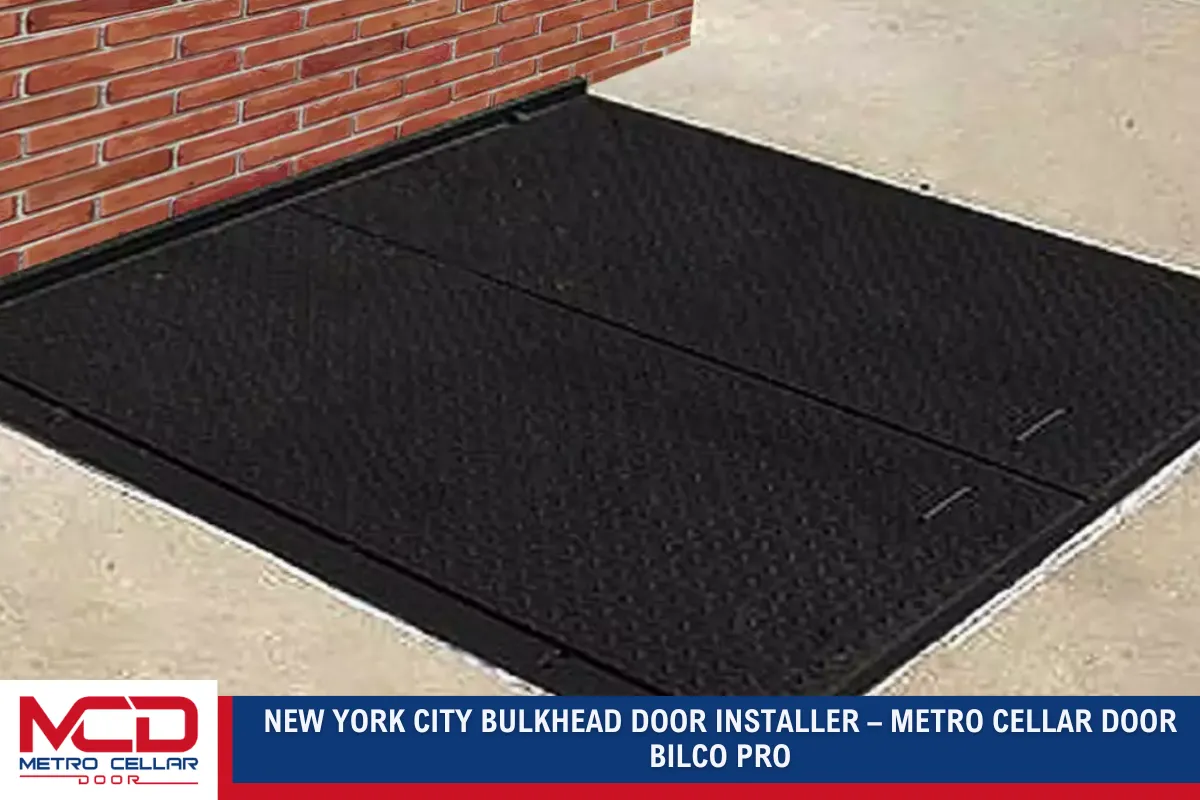
Metro Cellar Door Bilco Pro is the go-to installer of bulkhead doors in New York City. We take care of everything—permits, custom builds, and safe, code-compliant installation. Whether it’s a new door or a replacement, we make the process smooth and stress-free.
We install cellar doors, Bilco doors, fire-rated doors, and other types of doors for both residential and commercial properties. Our work is solid, weatherproof, and built to last—all at the best prices in the city.
We serve all NYC boroughs plus Long Island, Westchester, and Northern New Jersey. Call us for a free estimate at (929) 979-7313!
Frequently Asked Questions About Bulkhead Doors in New York City
What is a bulkhead door, and why is it important?
A bulkhead door, often referred to as a basement bulkhead door or cellar door, is an exterior access point to the basement or lower level of a home or building. It’s typically installed at an angle and made from steel, fiberglass, or heavy-duty composite materials. These doors serve as emergency exits and facilitate the movement of large items in and out of the basement, eliminating the need for passage through the main house.
Bulkhead doors are essential in NYC homes with below-grade spaces. Not only do they improve convenience and safety, but they also protect against water leaks, air leaks, and weather-related damage. When installed over a concrete foundation, they help preserve a code-compliant living space by preventing moisture intrusion and structural decay.
Modern bulkhead installations also feature additional components, including primer finish coatings, durable door frames, and foundation plates, for enhanced support and stability. Choosing the right bulkhead door installer ensures long-lasting performance and compliance with local codes.
What materials are best for bulkhead doors?
The material you choose for your bulkhead door affects its durability, insulation, and resistance to the elements. In New York City’s varied climate, material quality plays a huge role in preventing water damage and maintaining energy efficiency.
Top materials used for cellar doors include:
- Steel Cellar Doors
- Most common in NYC
- Heavy-duty and impact-resistant
- Usually comes with a rust-resistant primer finish
- Great for high-traffic or sidewalk areas
- Fiberglass Doors
- Lightweight and rust-proof
- Excellent for long-term weather resistance
- Insulates better, reducing air leaks
- Bilco Basement Door (Steel or Polyethylene)
- Popular branded option
- Built to handle heavy loads
- Works well with both concrete and wood foundations
Whether you’re installing a door into a foundation form & pour or over a finished slab, the right material ensures fewer maintenance issues and better energy performance over time.
What permits and codes apply to bulkhead installations in NYC?
Bulkhead installations in New York City must comply with strict building, fire, and safety codes. The NYC Department of Buildings requires permits for any installation involving changes to a structure’s exterior or concrete foundation.
Common code requirements include:
- Adequate clearance and proper door frame support
- Use of fire-rated or code-compliant living space materials
- Weatherproofing to prevent water leaks and air leaks
- Secure anchoring to a foundation plate or structural support
For sidewalk cellar doors, installers must also follow Department of Transportation (DOT) rules regarding pedestrian safety and sidewalk usage.
A licensed bulkhead door installer will handle all the necessary paperwork, ensuring your steel cellar doors or Bilco basement door installation meets current regulations. Hiring a professional helps avoid fines, violations, and costly redos.
How do I prevent water damage and leaks in a basement bulkhead door?
Water intrusion is a leading cause of damage to cellar doors, especially in NYC homes with old or poorly installed bulkhead doors. Moisture can lead to mold, rot, and even compromise your concrete foundation if not properly addressed.
To prevent water leaks and water damage, follow these steps:
- Use Proper Sealing Materials
- Install rubber gaskets and waterproof flashing
- Use weather-resistant caulking at seams
- Install Drainage Systems
- Drainage pits or pipes to divert water away
- Sloped pavement to prevent pooling
- Choose the Right Material
- Fiberglass doors and rust-resistant steel cellar doors are ideal
- Look for doors with a strong primer finish and tight door frames
- Routine Maintenance
- Clear debris from around the door
- Inspect seals every few months
- Check the foundation plate and the surrounding structure for cracks
These practices help preserve the longevity of your bulkhead installations and maintain a dry, safe basement.
Can bulkhead doors be installed on any foundation?
Yes, but the installation method depends on the type of foundation your home or building has. The most common types in NYC include poured concrete, block masonry, and stone foundations, each requiring specific installation techniques to ensure structural integrity and compliance with local building codes.
Here’s how it breaks down:
- Concrete Foundation
- Ideal for bulkhead doors
- Allows for solid anchoring of the door frame and foundation plate
- Great compatibility with Bilco basement doors
- Block Foundations
- Requires reinforced attachment points
- May need sealing around the joints to avoid air leaks
- Stone Foundations
- Often found in historic NYC homes
- Installation may involve custom fitting or masonry work
- Extra care is needed to prevent shifting and water leaks
Regardless of the type, hiring an experienced bulkhead door installer ensures that your sidewalk cellar doors or standard cellar doors are installed securely and in compliance with NYC regulations. Read more: Common Fire Code Violations a Fire Door Installer in New York City Can Help You Avoid
